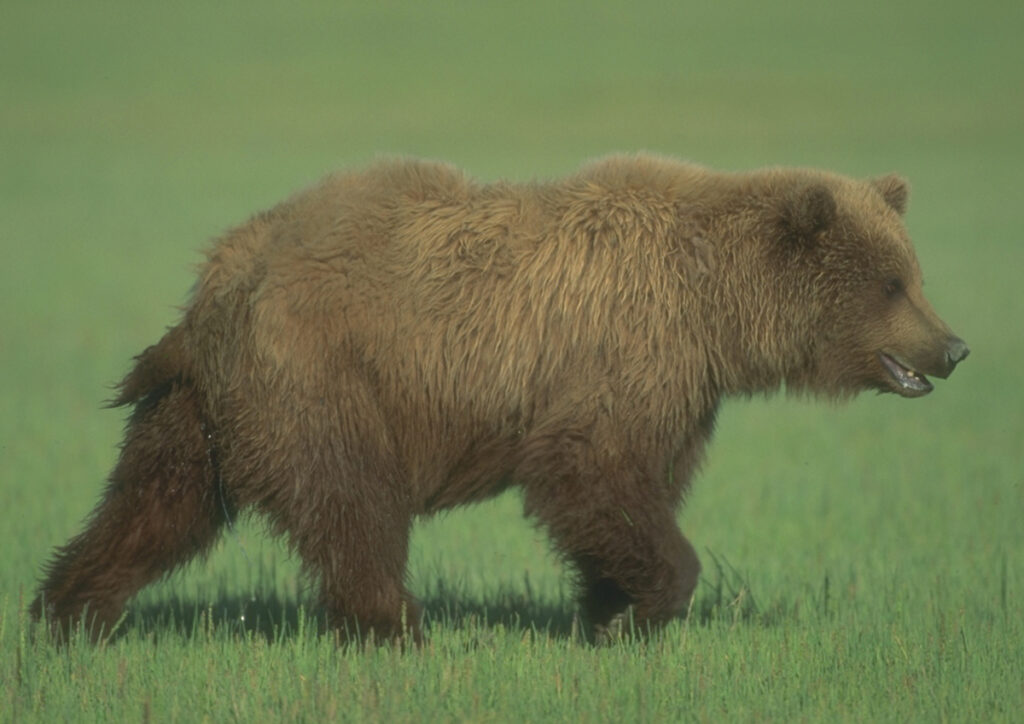Bill Will Empower State Wildlife Scientists in Grizzly Bear Management
United States Senator Cynthia Lummis (R-WY) has introduced Senate Bill 973, the Grizzly Bear State Management Act of 2021. The bill would remove grizzly bears in the Greater Yellowstone Ecosystem (GYE) from the US Endangered Species List and put their management in the hands of state wildlife scientists and managers. If enacted, the bill would direct the Secretary of the Interior to reissue a final rule to remove this population of bears from the Federal list within 180 days without regard to any other provision of law that may apply to that issuance.
“By all scientific measures, the grizzly bears of the Greater Yellowstone Ecosystem are fully recovered. Reproductive numbers are stable, and the population is at or near its max capacity for the habitat. It’s time to remove the grizzlies in this area from the Endangered Species List and allow wildlife scientists in Wyoming, Montana, and Idaho to manage the populations according to science,” says Senator Lummis in a press statement released by her office.
Senators John Barrasso (R-WY), Mike Crapo (R-ID) and James Risch (R-ID), and Steve Daines (R-MT) support the bill as well.
“Idaho’s local wildlife managers have a history of successful species management practices based on sound science and collaborative efforts among federal, state and tribal entities,” says Crapo. “The Grizzly Bear State Management Act will restore Idaho’s ability to responsibly manage grizzly bears for recovery while simultaneously addressing the needs of the landscape and local communities in the region.”

United States Fish & Wildlife Service (USFWS) reports that the GYE grizzly bear population increased from 136 individuals in 1975 to 728 in 2019. The recovery plan set three specific recovery goals that had to be met for six consecutive years. That was accomplished in 2003 and every year since then. US Fish & Wildlife Service has since attempted to remove the species from the federal listing numerous times. Anti-hunting groups have sued each time and succeeded in relisting the bears under various claims that they need continued protection, despite meeting recovery goals almost 20 years ago and continuing to expand outside the recovery area. The Grizzly Bear State Management Act of 2021, if passed, specifies that the reissuance of the final rule to delist the GYE grizzlies would not be subject to judicial review, putting a stop to the endless lawsuits challenging the science that supports the delisting.
“Safari Club International commends Senators Lummis, Barrasso, Crapo, Daines and Risch for bringing a bill to Congress that will empower the state wildlife experts on the ground to scientifically manage a recovered species in balance with the entire GYE and the people living with grizzlies outside the park,” says W. Laird Hamberlin, CEO of Safari Club International and Safari Club International Foundation. “Once a species is recovered under the guidelines of the ESA it is irresponsible not to manage it along with all the other species depending on the same ecosystem. That is especially true when the recovered species is prone to serious human-wildlife conflicts.”
USFWS and state wildlife managers report that reducing human-bear conflicts and increasing social tolerance of grizzly bears is key to their conservation now. Grizzly bear management is a top priority in the conservation strategy of SCI Foundation (SCIF). Thanks in part to a grant from the Wyoming Wildlife Foundation, SCIF is actively working to mitigate conflict issues with grizzlies. Together with Wyoming Game & Fish Department and the Western Bear Foundation, SCIF will distribute 450 cans of bear spray to licensed hunters and other recreationists in known high-conflict areas in August 2021, before the peak of backcountry activity. The need for conflict mitigation increases as grizzly bear populations continue to expand and SCIF is dedicated to increasing awareness and preparation that benefits grizzly bears and protects people. For more information about the SCIF bear conservation strategy visit https://safariclubfoundation.org/scif-bear-strategy/.
The goal of the Endangered Species Act listing is to recover a species to self-sustaining, viable populations that no longer need protection. A team of wildlife experts comprising the Interagency Grizzly Bear Committee created the Grizzly Bear Conservation Strategy in 1993 and revised it in 2006 as a long-term guide to manage and monitor the GYE grizzly bear population and to assure sufficient habitat to maintain its recovery. The Strategy gives state wildlife agencies the primary responsibility to manage grizzly bears outside the national parks and provides for development plans that define how grizzly bears should be managed. Passage of the Grizzly Bear State Management Act of 2021 would allow the strategy to be implemented as intended by those who worked on the bear’s recovery.

